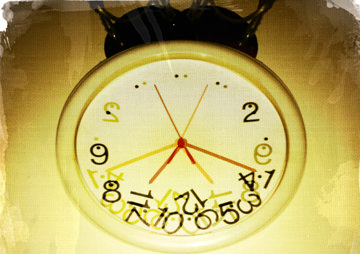There’s Been a Master Clock Inside You Telling You When to Sleep Since Before Your Birth
According to The Atlantic, scientists have discovered that “whether you’re a morning person or a night owl is determined on the cellular level.” A tiny cluster of neurons called the suprachiasmatic nucleus, or SCN, regulates sleep, sexual desire, hunger, thirst and several other vital functions. In other words, the SCN “tells you what to do […] Ever feel like your internal clock was a mess? There may be something to it. Caroline (CC BY-NC-SA 2.0)
Ever feel like your internal clock was a mess? There may be something to it. Caroline (CC BY-NC-SA 2.0)
According to The Atlantic, scientists have discovered that “whether you’re a morning person or a night owl is determined on the cellular level.” A tiny cluster of neurons called the suprachiasmatic nucleus, or SCN, regulates sleep, sexual desire, hunger, thirst and several other vital functions. In other words, the SCN “tells you what to do and when to do it.”
And apparently, ignoring what your SCN is telling you can do real damage to your body, which may explain why many workers on night shifts, or even those slugging away from 9 to 5, fall ill. Certain schedules may not agree with some people’s clocks and the results of imposing these timetables have been perilous.
The Atlantic:
This little mustard seed [sized SCN] is the master clock that keeps your brain and your body synced up. It’s what makes one person a night owl and the next a morning lark. And those characteristics appear to be genetic, decided before you were even born, says Seth Blackshaw, an associate professor of neuroscience at Johns Hopkins.
Blackshaw is the author of a new study about the development of the SCN, and his team’s findings represent a major step toward better treatments for sleep disorders, even jetlag.
Sleep problems are considered a “public health epidemic,” according to the Centers for Disease Control and Prevention. And people’s sleeping habits change as they age, a fact that’s well established but little understood.
—Posted by Natasha Hakimi Zapata
Your support matters…Independent journalism is under threat and overshadowed by heavily funded mainstream media.
You can help level the playing field. Become a member.
Your tax-deductible contribution keeps us digging beneath the headlines to give you thought-provoking, investigative reporting and analysis that unearths what's really happening- without compromise.
Give today to support our courageous, independent journalists.






You need to be a supporter to comment.
There are currently no responses to this article.
Be the first to respond.